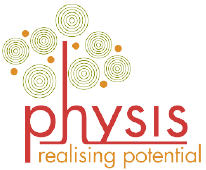Many times, in the corporate world, we face the question, “Is your EQ high or your IQ” and most of us answer the latter, lowering the importance of emotional intelligence, of staying in tune with your emotions as well as others’ emotions.
But navigating the turbulent times amid the pandemic has put the focus back on the need to lean on emotional intelligence. That’s why emotional intelligence has also emerged as one of the most in-demand skills after 2020, as per a LinkedIn analysis. It’s not just important in personal life, but the professional sphere as well, which is why we, at Physis, always pay attention to finding the core of emotional intelligence through our several self-leadership programs. Emotional intelligence training is an important aspect of leadership skill enhancement.
As we find harmony with this new altered reality in our workplace, emotional intelligence has turned out to be the biggest attribute to get on the path to become a better leader. Realizing the potential of oneself is part of emotional intelligence. Because individuals who are emotionally strong and self-aware can handle any adversity, or crisis effectively. In fact, emotional intelligence directly reflects in the relationships you build with your bosses, co-workers, and clients, and correlates with productivity and your ability to come up with successful strategies. Emotional intelligence is a key leadership skill.
The skills that helped you secure your first job, and first promotion may not guarantee your next. It is the relationship with your emotional intelligence, behavioural pattern and effectiveness that will carve the path ahead. Emotional intelligence training helps managers successfully manage teams, handle stress, deliver feedback, and collaborate with others and accounts for approximately 85 percent of what sets effective performers apart from their colleagues with similar technical knowledge.
Emotional intelligence guides how you interact, empathize and handle those around you and yourself as you process your actions. The good news is that you can develop emotional intelligence, and Physis can help you with it. In fact, you can take the first step of the journey of self discovery with our SALT course which guides you to apply EQ in an effective way to manage yourself, your team and all the other stakeholders as emotional intelligence leads to the development of good leadership skills.
Started wondering if you are in sync with your emotions. Or why do you respond and react to different situations in certain specific ways? The answer lies in being aware of your emotions, and behaviour. This helps you understand your emotional intelligence.
Till the time, let me break down emotional intelligence into four core components for better understanding, out of which some are even part of the Daniel Goleman’s Emotional Intelligence Quadrant. The four quadrants of emotional intelligence can be seen above. These four quadrants of emotional intelligence throw light on leveraging various aspects of emotional intelligence to enhance leadership capabilities.
Realising true potential
When it comes to effective leadership, self-awareness is at the core of everything and the first among Daniel Goleman’s four quadrants. Being in sync with your emotions describes your ability to not only understand your strengths, but also weaknesses. Self-awareness guides you to recognize your emotions and the effect they have on you and your team’s performance, which brings out the best efforts by all. But remember, in order to bring out the best in others, you first need to bring out the best in yourself, which is where the Relational Intelligence Program comes into picture and helps you introspect and realise your potential.
Self-management
Self-awareness leads to self-management, which is a result of better emotional intelligence and well-being. It particularly helps in keeping emotions in check especially in stressful situations, crises or maintaining a positive outlook despite setbacks while motivating the team, which in turn makes one an effective leader. Self-awareness helps you become a better leader.
Social awareness
Social awareness is what makes you aware of what is going on around you, and inside you. Finding a way to your emotions gives you the ability to recognize others’ emotions, driving it to generate an optimum result for the company. It also helps you to step up for others and makes you even more empathetic, which makes for the thin line differentiating between a successful leader with an effective one. Developing emotional intelligence helps you understand your colleagues’ feelings and perspectives, which enables you to communicate and collaborate more effectively with social awareness.
Relationship management
It might be the last piece of the EQ puzzle, but is the most important one in the four quadrants of emotional intelligence. Your relationship with yourself, colleagues, team and clients directly reflects in your career. The ability to build and maintain healthy relationships is what it takes to make you a better leader. A great leader generates great results, but an effective one does it by using relationships to inspire others to achieve mutual goals and build a common vision. The best way to do this is to harness emotional intelligence.
All in all, the journey of becoming an effective leader starts by stepping up for yourself first. When you rise up emotionally, you help to build a cohesive environment for yourself and the organisation. Get to a point where you rise up to the everyday challenges, become a compassionate leader to your team while reaping benefits of having strong emotional intelligence.


